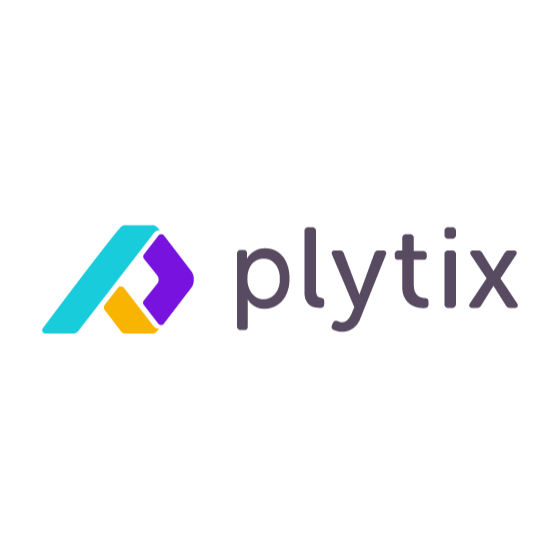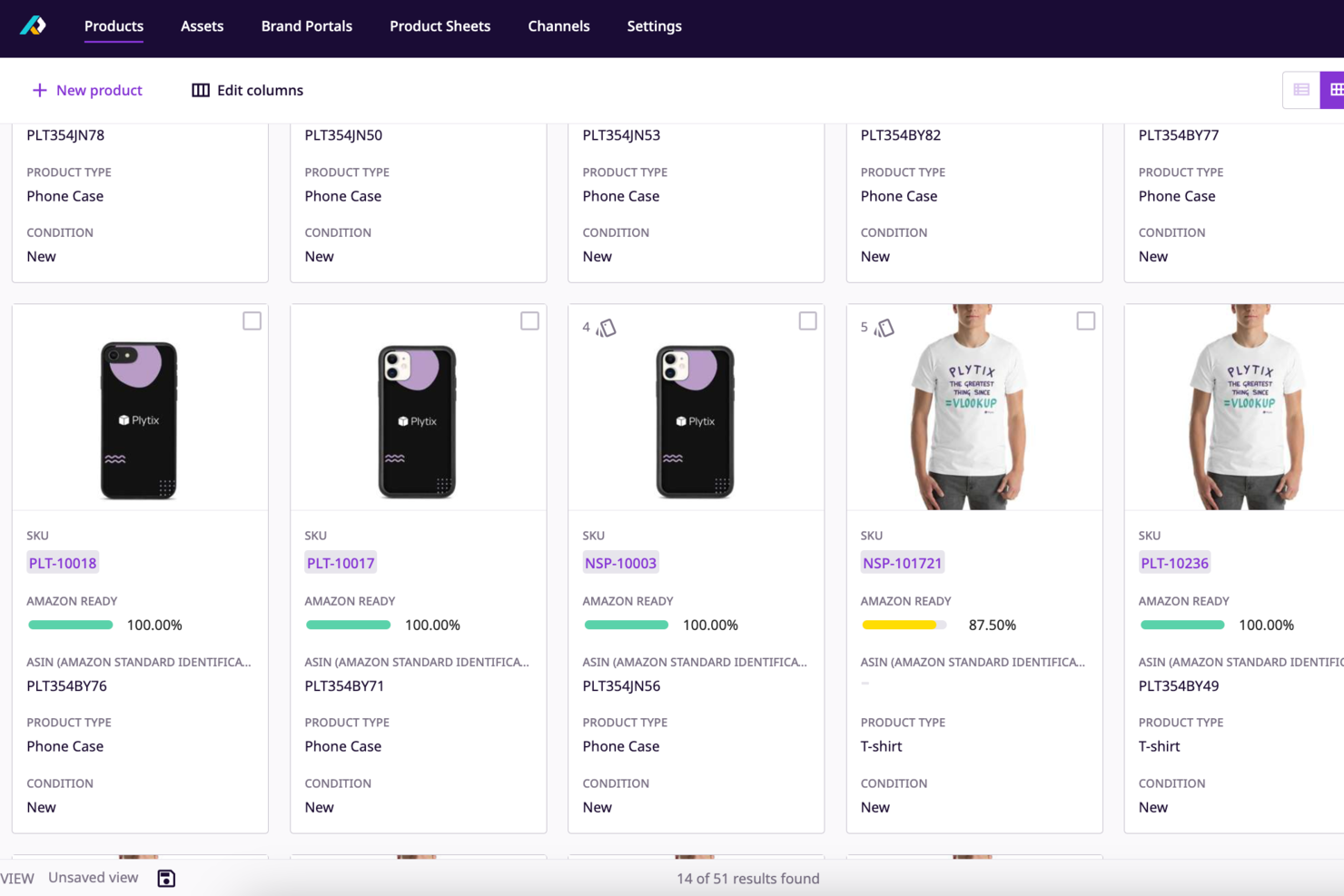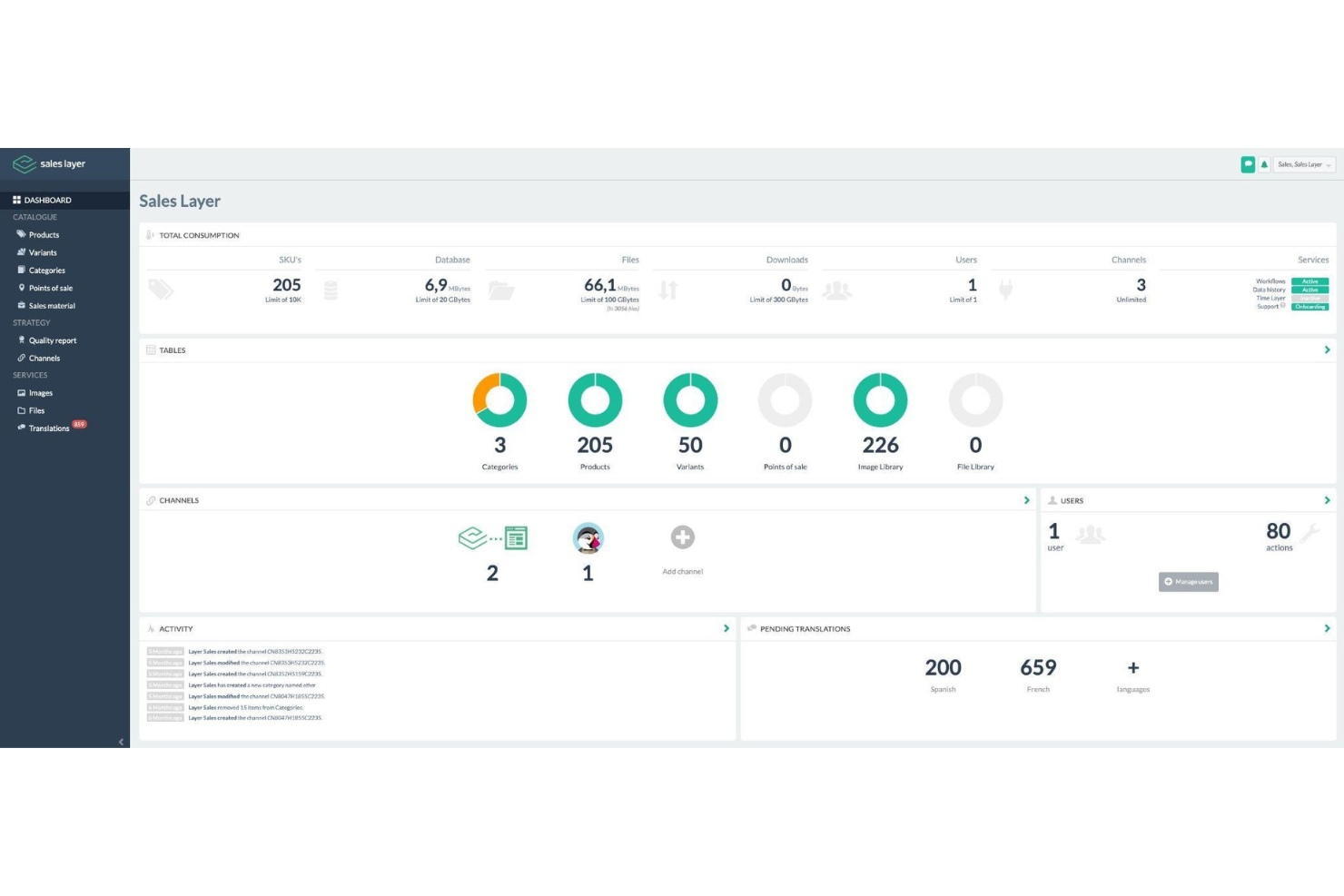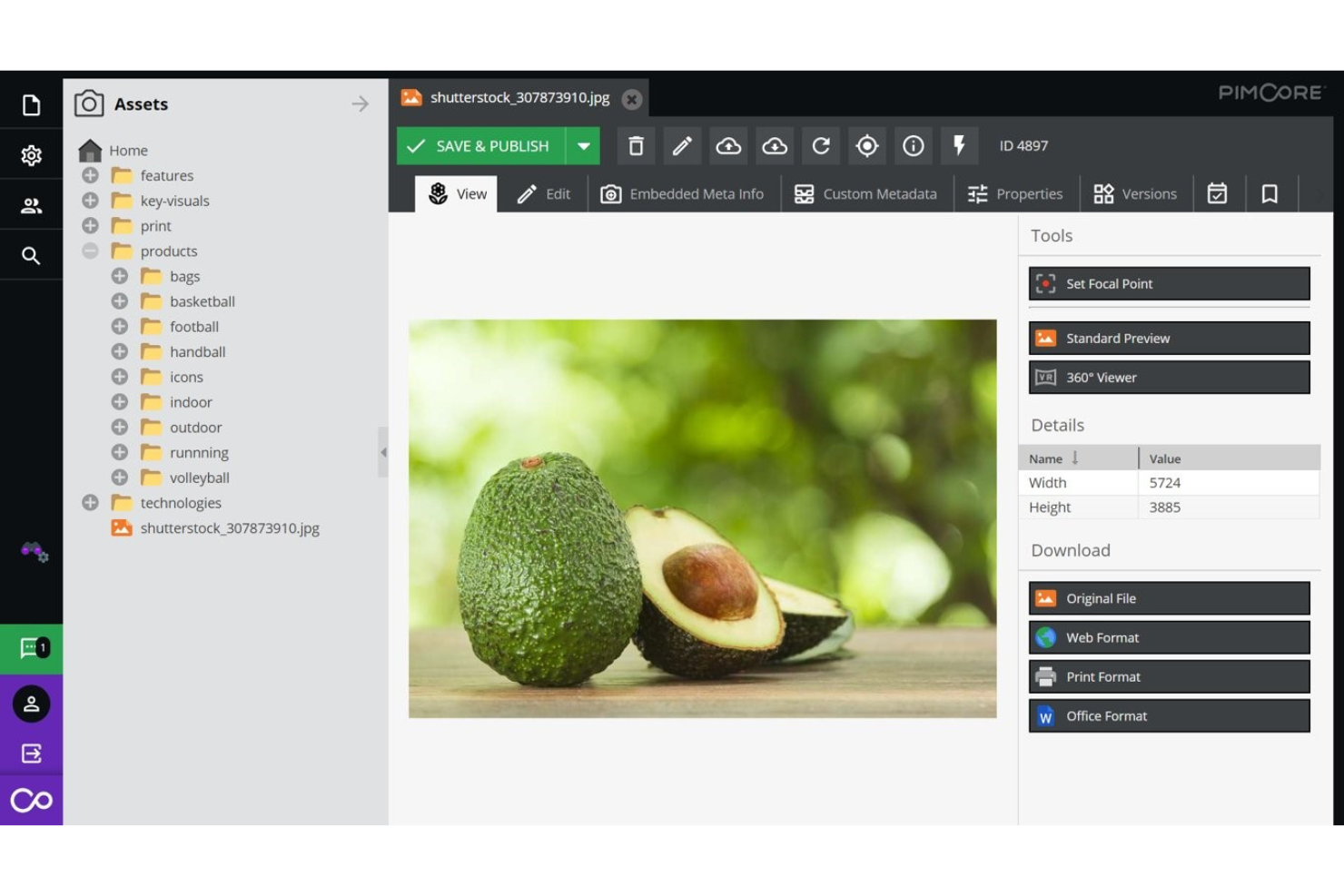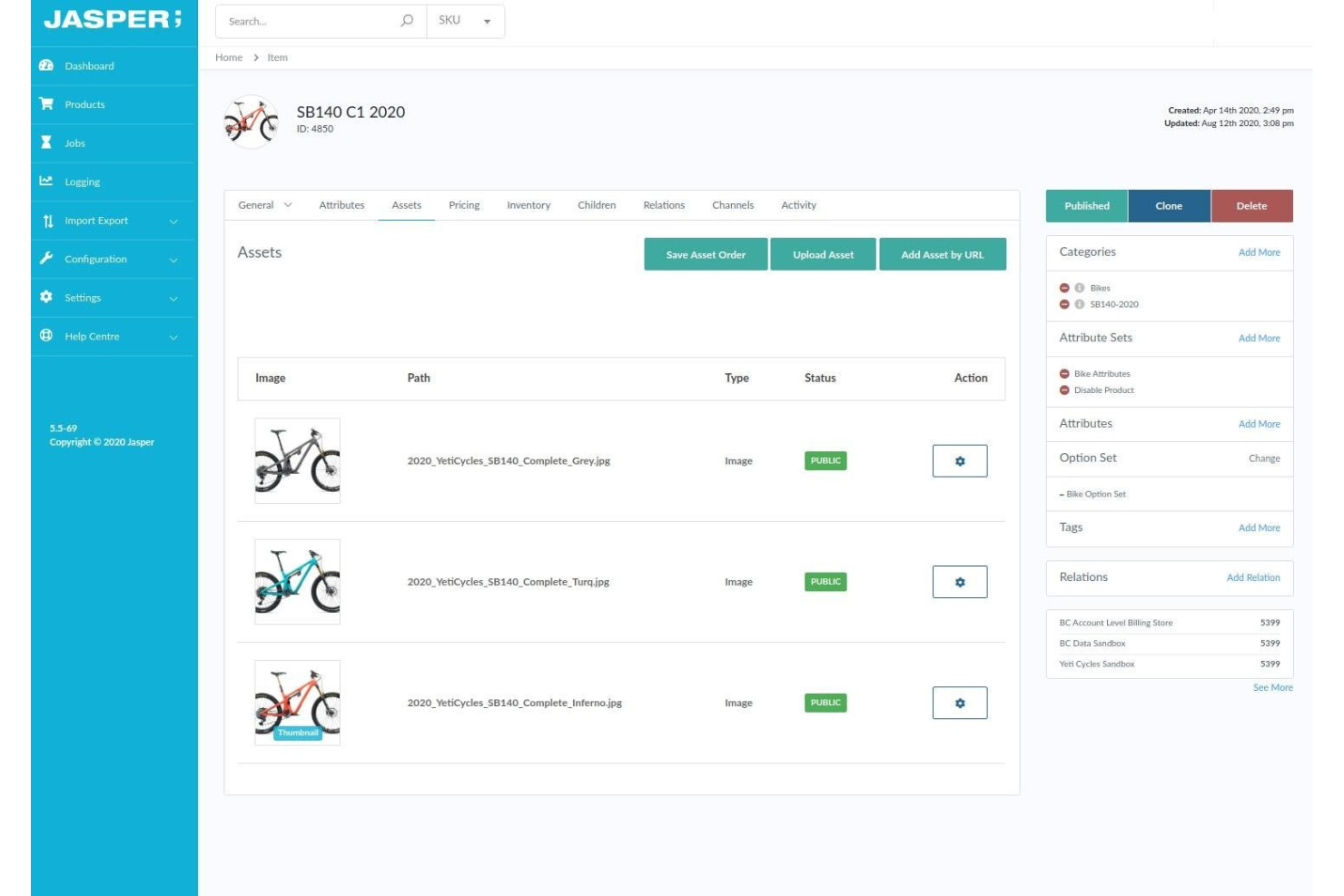10 Best Catalog Management Software Shortlist
Here's my pick of the 10 best software from the 21 tools reviewed.
With so many different catalog management software solutions available, figuring out which is right for you is tough. You know you want to facilitate the accurate and consistent presentation of product information across various sales channels—but now need to figure out which tool is best. I've got you! In this post, I'll help make your choice easy, sharing my personal experiences using dozens of different catalog management tools with online stores of all sizes, with my picks of the best catalog management software overall.
What Is Catalog Management Software?
Catalog management software is a streamlined tool for organizing and displaying product information. It simplifies updating and maintaining product details like prices, descriptions, and availability across various sales platforms. The purpose is to ensure accurate, consistent product data, enhancing customer experience and aiding in efficient inventory management.
Overviews Of The 21 Best Catalog Management Software
Here’s a brief description of each catalog management software to showcase each one’s best use case, some noteworthy features, screenshots, and pricing information.
Plytix is a product information management tool that gives your teams a single source of truth.
Why I picked Plytix: The platform is a product information management platform that allows ecommerce businesses to find, edit, and optimize product details. It can handle various elements such as technical specifications, channel-specific information, and marketing data. Plytix can help you create branded product sheets to send to retailers and marketplaces when selling on different channels.
Plytix is a popular tool among small and medium businesses to help them get their product to market. It can help small businesses showcase their products similar to a large enterprise and impress their customers. Plytix also creates product catalogs with email notifications that allow you and your teams to track where all your product content goes.
Plytix Standout Features and Integrations
Features include digital asset management, scheduled imports, spreadsheet and grid view, user roles, custom permissions, computed product attributes, product completion tracking, data export, variation handling, product relationship management, and bulk product editing.
Integrations include Google Ads, Shopify, WooCommerce, Magento, Google Shopping, Salesforce Commerce Cloud, Dropbox Business, Microsoft Advertising, and an API that allows custom integrations.
Plytix costs from $450/month. Plytix offers a free forever subscription tier.
Pros and cons
Pros:
- Easy to onboard team members.
- Extensive video and support pages.
- Incredibly functional and intuitive.
Cons:
- Free version is limited.
- Limited features compared to enterprise options.
Algolia helps your ecommerce business create catalogs with product search and discovery capabilities.
Why I picked Algolia: The software helps your business design and implement unique search experiences when visiting your online store. It builds these experiences with AI and configurable rules. It also uses a robust API that helps you add related products and frequently bought-together functionality to your catalog.
Algolia helps any sized ecommerce store looking to add search functionality to their product catalog. You can implement and manage consistent experiences across multiple channels from one platform. You don’t have to build this experience from scratch; just implement Algolia’s building blocks to deliver the right experiences immediately.
Algolia Standout Features and Integrations
Features include extensive documentation, actionable insights, A/B tests, data dashboard, pre-built libraries, visual editor, voice search, image search, and a site crawler.
Integrations include Salesforce Commerce Cloud, Netlify, Magento, Shopify, and Zendesk. Additional options can be unlocked using a plan through Zapier, but this may incur additional costs.
Algolia costs from $1.00/1,000 requests/month. Algolia offers a free forever subscription tier.
Pros and cons
Pros:
- Large developer community.
- Works with most coding languages.
- Create rules according to customer needs.
Cons:
- Can be buggy.
- Can take time to index products.
Sales Layer identifies gaps and errors in your product data to help you enhance your content and increase orders.
Why I picked Sales Layer: It works with all data sources to determine where you can improve your product data. The information it provides can help you improve your product listing’s rankings, so your target audience will find it. You can get insights into your catalog’s performance including team performance, quality progress, content completeness, and channel analysis. Sales Layer can also help you track changes in a real-time activity feed that details all team members’ actions and when they made the changes.
Sales Layer is a cloud-based solution that helps any sized ecommerce store manage and organize product information. The platform will synchronize and update your data automatically, analyze its quality, and publish it throughout multiple sales channels and platforms. It also maps every product field with the proper categories, attributes, and groups.
Sales Layer Standout Features and Integrations
Features include a data scanner, quality score, activity feed, data history, quick data import, intuitive exporting, digital asset management, access permissions, product workflows, and version history.
Integrations include CS-Cart Multi-Vendor, Salesforce, WordPress, Shopify, Microsoft Excel, WooCommerce, Magento, BigCommerce, PrestaShop, and ChannelAdvisor.
Sales Layer offers custom pricing upon request. Sales Layer offers a 30-day free trial for new users.
Pros and cons
Pros:
- Excellent customer service.
- Unifies all product details.
- Easy to use.
Cons:
- Sometimes information transfer is slow.
- Product filtering needs work.
Pimcore is an open source platform that unites your data and experience management in a single repository.
Why I picked Pimcore: The software offers your business product information management, digital asset management, master data management, digital commerce, and web content management in one central location. Pimcore is a single and trusted view of your product information to ensure your business, and customers get high-level data consistency. It can integrate into IT frameworks and acquire and manage all digital data types.
Pimcore is open source software, which means any ecommerce business can use it for free to manage its product catalog. If you have multiple domains or operate ecommerce stores in different markets, Pimcore’s flexibility can deliver data from a central repository and display it on any sales channel. You can also manage millions of SKUs with thousands of attributes through the platform, even with the most complex data.
Pimcore Standout Features and Integrations
Features include data modeling, data management, workflow management, data quality management, digital asset management, omnichannel publishing, product experience portal, product data syndication, and product feed management.
Integrations include Oracle NetSuite, Salesforce Marketing Cloud, JetRails, Alumio, CELUM, Combeenation, Hostripples, Drupal, Shopify, Microsoft Azure, Episerver, SAP ERP, Sitecore, and InterServer.
Pimcore costs from $1,800/month. Pimcore offers a free forever subscription.
Pros and cons
Pros:
- Flexible data modeling.
- Helpful field collection and classification.
- Advanced role permissions.
Cons:
- Long learning curve.
- No default configurations.
CatBase enhances the process of creating catalogs using relational database management structures.
Why I picked CatBase: If you already have a simple database with your product information or a complex one with various relational links, you can use CatBase to publish your data into a catalog. It then adds special tags to automatically format your information and pictures. It will then produce an illustrated catalog in a few minutes. You can set up publishing projects in the platform, which tells the software what to publish, how to organize it, and what elements to include.
CatBase is suitable for small, medium, and large organizations with a database containing their product data. Your database can be in various forms, such as an Excel, text, or XML file, which the platform will convert and publish for you. If you operate in multiple markets or territories, you can establish rules to determine what to add to your catalog and what to leave out.
CatBase Standout Features and Integrations
Features include pricing management, custom catalogs, custom product attributes, content management, product comparison, and catalog creation.
Integrations include Adobe Acrobat DC, Microsoft Excel, Adobe InDesign, Microsoft Word, and QuarkXPress.
CatBase costs from a one-time payment of $777 with an option to add various upgrades. CatBase allows users to download a free trial by using a trial license.
Pros and cons
Pros:
- Easy to access.
- User friendly.
Cons:
- Additional upgrades can add up.
Elastic Path Product Experience Manager (EP-PXM) allows ecommerce stores to manage dynamic catalogs without custom developer work.
Why I picked EP-PXM: The software helps you create product catalogs for every sales channel without any limitations. You can then assign rules to each catalog to ensure only the right audience will see them. EP-PXM enables your business to create rules that dynamically trigger catalogs based on customer groups, sales channels, email addresses, and more crucial aspects. These dynamic rules remove the need to work with a developer whenever you need to make a change to a catalog.
EP-PXM is a better fit for large enterprises that have an enormous amount of complex product data. It can help you use this data to create product experiences that increase conversions. EP-PXM can produce over 10,000 product variations and build dynamic bundles for your customers.
EP-PXM Standout Features and Integrations
Features include product data importing, product management, product merchandising, catalog composer, and order management.
Integrations include Algolia, Stripe, Bloomreach, Google Analytics, Contentful Square POS, Drupal, SmartHint, Authorize.net, Coveo, Cybersource, Amplience, and Vertex.
Elastic Path Product Experience Manager costs from $50,000/year.
Pros and cons
Pros:
- Dependable, fast API.
- Customizable core functionality.
- Very user-friendly.
Cons:
- Very expensive.
- Installation process is lengthy.
Hygraph is a content platform that enables your business to get true value from your backend data sources.
Why I picked Hygraph: The software helps your business integrate all your data sources and distribute content anywhere you need. It uses a drag-and-drop interface that removes the need for coding knowledge or hiring an experienced developer. You can use the system to add all necessary data from your backend and create a well-developed product catalog that contains all the product information your customers need.
Hygraph helps businesses of all sizes visualize their content flow to ensure all information goes where it’s needed. It can save your business time and money you might spend overhauling your current tech stack to match your growing needs. Hygraph can help you enhance their capabilities and remove the overhead while creating a product catalog that works for you.
Hygraph Standout Features and Integrations
Features include schema builder, scheduled publishing, granular permissions, rich text, webhooks, document indexing, version control, customizable templates, and a form builder.
Integrations include Commerce Layer, Bynder, Salesforce, Slack, BigCommerce, Plasmic, Popupsmart, Uniform, Stackreaction, and an API that allows users to create custom integrations.
Hygraph costs from $399/project/month when paying monthly or $299/project/month when billed annually. Hygraph has a free forever subscription for up to three users.
Pros and cons
Pros:
- Fast user interface.
- Excellent documentation.
- Extremely flexible.
Cons:
- Paid plans are expensive.
Productsup Advertising PX helps ecommerce stores sell large amounts of products directly through various sales channels.
Why I picked Productsup Advertising PX: Ecommerce organizations can use this all-in-one solution to manage product information chains and content data across their sales channels. The Advertising PX solution from Productsup enables your business to sell more and sell faster by helping you create excellent experiences across all touchpoints. It can help you produce perfectly tailored product catalogs for any sales channel and audience while overcoming the complexity of modern advertising environments.
Productsup Advertising PX can help medium and large ecommerce enterprises allow machine learning to systematically connect product information to channel-specific attributes. You can use the platform to clean your current catalog with its editing tools. The software will also provide immediate feedback on your sales channel’s readiness, including existing errors, optimization potential, and implementation options.
Productsup Advertising PX Standout Features and Integrations
Features include automatic data mapping, image and video designer, channel previews, campaign optimization, product information management, and A/B testing.
Integrations include Widen Collective, CS-Cart Multi-Vendor, Google Analytics, Shopify, WooCommerce, Magento, BigCommerce, OpenCart, Pinnacle Cart, LemonStand, Contentserv, SAP Business One, Salesforce Commerce Cloud, and Cdiscount.
Productsup Advertising PX offers custom pricing upon request. Productsup Advertising PX offers a free demo to help you determine whether the platform is right for you.
Pros and cons
Pros:
- Control and manage all products.
- Friendly and helpful customer support.
- Synchronizes product data.
Cons:
- Complex feed management.
- Difficult to navigate.
Salsify Open Catalog is a free product catalog that makes it easier for ecommerce brands to collaborate and standardize product data.
Why I picked Salsify Open Catalog: The software is a free and open catalog platform that centralizes standardized data that makes it easier for ecommerce retailers and their teams to collaborate on its content. You can use it to easily and quickly transfer data to syndicate your product content to multiple sales channels simultaneously. You can retrieve and use the data from numerous sources, such as an API, a file transfer protocol, or a manual user interface export.
Salsify Open Catalog is a part of the Product Experience Management solution, which combines product information management, digital asset management, and experience builder tools. It works for businesses of any size looking for ways to organize and share products. Its capabilities enable sales from multiple sales channels, including online marketplaces and social media.
Salsify Open Catalog Standout Features and Integrations
Features include product information distribution, content updating, brand experience maintenance, product information syndication, analytics, data import, data visualization, and 2-factor authentication.
Integrations include Widen Collective, Bynder, Qliktag Platform, Clear Spider, Titan CMS, Aprimo, Exenta, HubSoft, and an API that allows custom integrations.
Salsify Open Catalog is free to use.
Pros and cons
Pros:
- Automated Workflows.
- Creates excellent ecommerce experiences.
- Provides an excellent knowledge base.
Cons:
- Limited to US ecommerce stores.
- Fixing bugs takes time.
Jasper PIM helps ecommerce businesses organize product data and share it on numerous online store platforms.
Why I picked Jasper PIM: You can use the platform to publish product content accurately while eliminating redundancies. Jasper PIM acts as a single source of truth while acting as a data repository allowing you to share your product data no matter which ecommerce platform you use, such as Shopify or BigCommerce. Just set it and forget it while letting the syndication engine handle the rest.
Jasper PIM is a leading SaaS solution that provides robust product information management solutions for online stores that use the Big 4 ecommerce platforms. You can use the platform to customize and publish products to new marketplaces, such as Amazon or Google Merchant Center. It unifies your entire tech stack and optimizes how you market and sell products when expanding to new sales channels.
Jasper PIM Standout Features and Integrations
Features include asset categorization, metadata management, product search and filter, content syndication, data modeling, digital asset management, catalog management, templates, and document management.
Integrations include Shopify, Magento, BigCommerce, Brightpearl, Signifyd, Searchspriing, Patchworks, Jitterbit, Shopify Plus, and an API that allows you to create custom integrations.
Jasper PIM costs from $999/month. Jasper PIM offers a 14-day trial for new users.
Pros and cons
Pros:
- Excellent customer support.
- Easy to set up.
- Great user interface.
Cons:
- Trial is difficult to start.
- Needs better video tutorials.
The Best Catalog Management Software Summary
| Tools | Price | |
|---|---|---|
| Plytix | From $450/month | Website |
| Algolia | From $1.00/1,000 requests/month | Website |
| Sales Layer | Pricing upon request | Website |
| Pimcore | Pricing upon request | Website |
| CatBase | From a one-time payment of $777 with an option to add various upgrades | Website |
| Elastic Path Product Experience Manager | From $50,000/year | Website |
| Hygraph | From $399/project/month | Website |
| Productsup Advertising PX | Pricing upon request | Website |
| Salsify Open Catalog | Free To Use | Website |
| Jasper PIM | From $299/month | Website |

Compare Software Specs Side by Side
Use our comparison chart to review and evaluate software specs side-by-side.
Compare SoftwareOther Options
Here are a few more options that didn’t make the best catalog management list:
- B2B Wave
Best for product suppliers
- Publitas
Best for publishing interactive catalogs
- Flipsnack
Best PDF-to-flipbook publication converter.
- Syndigo
Best for creating core product content.
- iPaper
Best for creating digital catalogs from PDFs.
- Feedonomics
Best full-service product feed platform.
- Akeneo Shared Catalogs
Best for product information collaboration.
- Catsy
Best product content HUB.
- Wholesale/Retail Catalog Maker for Shopify
Best for taking orders from your catalog.
- Catalog Maker by for BigCommerce
Best intuitive drag-and-drop catalog builder interface.
- Catalog Machine
Best for sharing digital catalogs. Catalog Maker by for BigCommerce
How I Selected the Best Catalog Management Software
Perhaps you're wondering how I selected the best catalog management software for this list? To build this top 10 list, I evaluated and compared a wide range of catalog management software with positive user ratings.
After determining my long list of top choices, I further honed my list by using the selection criteria below to see how each platform stacked up against the next one. I also drew on my years of ecommerce experience to pinpoint the features that add a lot of value.
Selection Criteria
Here’s a short summary of the main selection and evaluation criteria I used to develop my list of the best catalog management software for this article:
Automation:
Automation will help you make better decisions, create engaging product catalogs, and provide customers with up-to-date product information. I look for catalog software to automate product data importing and exporting to help your business save time, reduce errors, and increase productivity. Automation should help ensure you don’t miss any crucial product fields, create consistency between similar products, and update hundreds or thousands of products simultaneously.
Customer Experience:
Your customers expect your store to provide an uninterrupted, continuous experience when shopping for new products. I look for platforms to help your company predict your customers’ requirements, expectations, and pain points. This can empower your store to provide a flawless experience. It should also help you create a flexible catalog design to accommodate future inventory updates.
Customizable:
Customers will have different needs when shopping in your online store. I look for software that allows you to personalize your catalog to fit your customers’ requirements. It should display products that are most likely to sell and suggest different product alternatives. Customizing your catalog can attract customers and keep them engaged for longer when the information is relevant to them. It will show your customers how much you value them.
Software Integrations:
Consistency is crucial when operating an ecommerce store. Integrating with other applications and systems can eliminate inconsistent or missing data. Manual work can lead to human error, whereas an effective integration can remove unnecessary work. It can also fuel consistency throughout your company’s departments and bring everything and everyone together. When searching for catalog management software to add to this list, I look for platforms that integrate with software, such as online shopping carts, enterprise resource management, and customer relationship management systems.
Pricing:
The price you pay to use a catalog management platform in your business can depend on many factors. But, no matter what you pay, you should get more value from using it. I look for affordable catalog management software no matter your business’s size and one where you’ll be using most of its features. I also look for software that offers different subscription prices that fits your budget and provides a free trial or demo to help you get an excellent understanding if it will work for your company. That way, you don’t feel as if you’re wasting money.
People Also Ask
What Are the Benefits of Catalog Management Software?
What are the Key Features of Catalog Management Software?
What Other Ecommerce Tools Should I Use?
Build Out the Best Catalog for Your Ecommerce Business
Choosing the right catalog management software for your store can be challenging and time-consuming, no matter what product you sell. But this search is worthwhile because the best platform for your ecommerce store will help you build an effective catalog by helping you update pricing, track and process purchases, and control inventory. Which I think we can all agree is worth the effort.
Hopefully, this list will help ease this effort, and if you need more tools and advice, you can always try signing up for the Ecomm Manager newsletter. Here you’ll get high-level ecommerce knowledge from the top leaders in the industry and new lists of the top tools to operate your online store - just like this!

